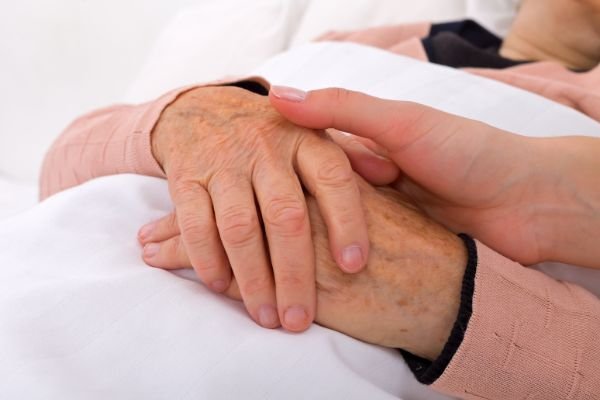Legal support following a stroke
The impact of a loved one suffering a stroke can be highly distressing for them and their family. In the aftermath, the survivor and their relatives might require assistance in managing continuing legal matters. It's important here to acknowledge that each situation is unique; while some individuals may fully recuperate, others might face enduring challenges. For many, the journey towards recovery can be a lengthy process.
The stroke survivor will need to ensure that their affairs are dealt with, either by them with some support, or by someone else if they are not able to manage things themselves. This not only includes their financial affairs, but their care arrangements as well, following an assessment of their care needs.
arrow_back Back to Care Support
Following a Stroke
Hilary Cragg, a Partner and Solicitor at Nash & Co Solicitors in Plymouth, is able to offer support, advice and guidance to individuals who have experienced a stroke, as well as their families. She’s experienced and knowledgeable when it comes to dealing with issues related to a Power of Attorney, understanding healthcare rights, or navigating funding options.
Hilary delivers a service that not only addresses immediate legal concerns, but also anticipates and prepares for the long-term implications of living with the aftermath of a stroke. Her expertise brings much-needed clarity and assurance, allowing individuals and their families to focus on the recovery journey.
Stroke Recovery and Legal Guidance
Following a stroke, many people find themselves facing unexpected and complex challenges. These can be medical, physical, emotional, and even legal. That's where the expert support of Hilary Cragg from Nash & Co Solicitors becomes important. With a strong understanding of the specific legal issues that arise post-stroke, Hilary is experienced in providing the support and guidance needed.
She can help clients and their families understand and navigate the legal landscape, addressing concerns such as healthcare rights, capacity issues, power of attorney, and financial matters. Her understanding of stroke-related medical complexities allows her to liaise effectively with healthcare professionals, ensuring that clients' legal rights and care needs are appropriately met.
call Speak to a friendly Court of Protection Solicitor on 01752 827047
Assistance with Power of Attorney and Mental Capacity
One of the key areas where stroke survivors often require legal support is in establishing a Power of Attorney and addressing mental capacity issues. Depending on the severity of the stroke, some individuals may not be able to make decisions regarding their health or financial matters. In such instances, Hilary expertise and experience becomes invaluable. She can guide clients through the process of setting up a Power of Attorney, or when the person lacks capacity, can provide help with the deputyship process, helping to designate a trusted individual to make decisions on their behalf.
Additionally, she can provide guidance on matters of mental capacity, ensuring that clients are treated fairly and their rights are protected. Her expertise in this area allows clients to feel confident that their future care and personal affairs are in good hands.
Navigating NHS Continuing Healthcare Funding
Following a stroke, many people may find themselves eligible for NHS Continuing Healthcare funding. However, the application process can be daunting and stressful to go through, and not everyone who applies is successful. This is another area where Hilary can provide much-needed support.
Drawing from her in-depth understanding of the NHS system and its funding processes, she can help clients gather the necessary evidence, support the client or family through the completion of the application, and present a compelling case for eligibility. If the initial application is unsuccessful, she can assist clients in challenging the decision and pursuing an appeal. By leveraging her expertise, clients can improve their chances of securing the funding they need to support their ongoing care and recovery.
Why Nash & Co Solicitors?
Hilary has a deep understanding of the legal and practical issues involved in helping stroke survivors and their families, and can provide expert guidance and support throughout the process.
At Nash & Co Solicitors, we're committed to helping you and your loved ones manage the challenges that need to be faced following a stroke. These can involve healthcare funding, mental capacity issues and establishing or helping to manage a Lasting Power of Attorney. Contact Hilary today to schedule a consultation and learn more about how we can help you navigate the process. We’re always here to help you.
You can call Hilary on 01752 827047 or email her at hcragg@nash.co.uk.
Frequently asked questions
-
Yes, stroke survivors in the UK are protected by various laws and regulations. The Equality Act 2010 is the primary legislation that prohibits discrimination based on disability, including stroke-related disabilities. It covers areas such as employment, education, housing, and provision of goods and services.
-
Stroke survivors in the UK are protected against various forms of discrimination, including direct discrimination, indirect discrimination, harassment, and victimisation. Direct discrimination refers to treating someone less favourably due to their stroke-related disability.
-
Creating a Will is important for stroke survivors in the UK, as it allows them to specify how they want their assets and belongings to be distributed after their passing. By having a legally valid Will, stroke survivors can ensure that their wishes are followed, provide for their loved ones, and potentially minimize any disputes or complications that may arise regarding their estate.
-
A Lasting Power of Attorney (LPA) is a legal document that allows an individual (the "donor") to appoint someone they trust (the "attorney") to make decisions on their behalf if they become unable to make decisions independently due to physical or mental incapacity, such as a stroke. For stroke survivors, an LPA can be crucial in ensuring that their financial, property, and healthcare decisions are made in their best interests and according to their preferences, even if they are unable to communicate or make decisions themselves.
-
In the UK, there are two types of LPAs: Property and Financial Affairs LPA and Health and Welfare LPA. A Property and Financial Affairs LPA grants the appointed attorney the authority to manage the donor's financial affairs, including paying bills, managing investments, and buying or selling property. A Health and Welfare LPA, on the other hand, gives the attorney the power to make decisions related to the donor's healthcare, medical treatments, and general welfare, including decisions about living arrangements and end-of-life care.
-
To create an LPA in the UK, stroke survivors need to follow a formal process. It involves completing the relevant LPA forms. The forms require the stroke survivor to appoint one or more attorneys, specify their powers, and include any specific instructions or preferences. The completed forms must then be registered with the OPG, and a registration fee is payable.
Related insights
Meet the Care Support team
Get in touch
Fill out the form below and let us know whether you would like us to call you, or email you. One of our Care Support team will be in touch as soon as we can.
If your enquiry is urgent then please call us on 01752 827047.
arrow_back Back to Care Support
















